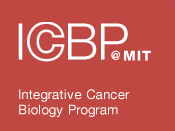| Title | Extensive changes in DNA methylation are associated with expression of mutant huntingtin. |
| Publication Type | Journal Article |
| Year of Publication | 2013 |
| Authors | Ng, CW, Yildirim, F, Yap, YS, Dalin, S, Matthews, BJ, Velez, PJ, Labadorf, A, Housman, DE, Fraenkel, E |
| Journal | Proc Natl Acad Sci U S A |
| Volume | 110 |
| Issue | 6 |
| Pagination | 2354-9 |
| Date Published | 2013 Feb 5 |
| ISSN | 1091-6490 |
| Keywords | Animals, Cell Line, Chromatin Immunoprecipitation, CpG Islands, Disease Models, Animal, DNA Methylation, Gene Expression, Humans, Huntington Disease, Mice, Mutant Proteins, Nerve Tissue Proteins, Nuclear Proteins, SOXB1 Transcription Factors, Transcription Factor AP-1 |
| Abstract | The earliest stages of Huntington disease are marked by changes in gene expression that are caused in an indirect and poorly understood manner by polyglutamine expansions in the huntingtin (HTT) protein. To explore the hypothesis that DNA methylation may be altered in cells expressing mutated HTT, we use reduced representation bisulfite sequencing (RRBS) to map sites of DNA methylation in cells carrying either wild-type or mutant HTT. We find that a large fraction of the genes that change in expression in the presence of mutant huntingtin demonstrate significant changes in DNA methylation. Regions with low CpG content, which have previously been shown to undergo methylation changes in response to neuronal activity, are disproportionately affected. On the basis of the sequence of regions that change in methylation, we identify AP-1 and SOX2 as transcriptional regulators associated with DNA methylation changes, and we confirm these hypotheses using genome-wide chromatin immunoprecipitation sequencing (ChIP-Seq). Our findings suggest new mechanisms for the effects of polyglutamine-expanded HTT. These results also raise important questions about the potential effects of changes in DNA methylation on neurogenesis and cognitive decline in patients with Huntington disease. |
| DOI | 10.1073/pnas.1221292110 |
| Alternate Journal | Proc. Natl. Acad. Sci. U.S.A. |
| PubMed ID | 23341638 |
| PubMed Central ID | PMC3568325 |
| Grant List | R01 GM089903 / GM / NIGMS NIH HHS / United States R01GM089903 / GM / NIGMS NIH HHS / United States U54 CA112967 / CA / NCI NIH HHS / United States U54CA112967 / CA / NCI NIH HHS / United States |
